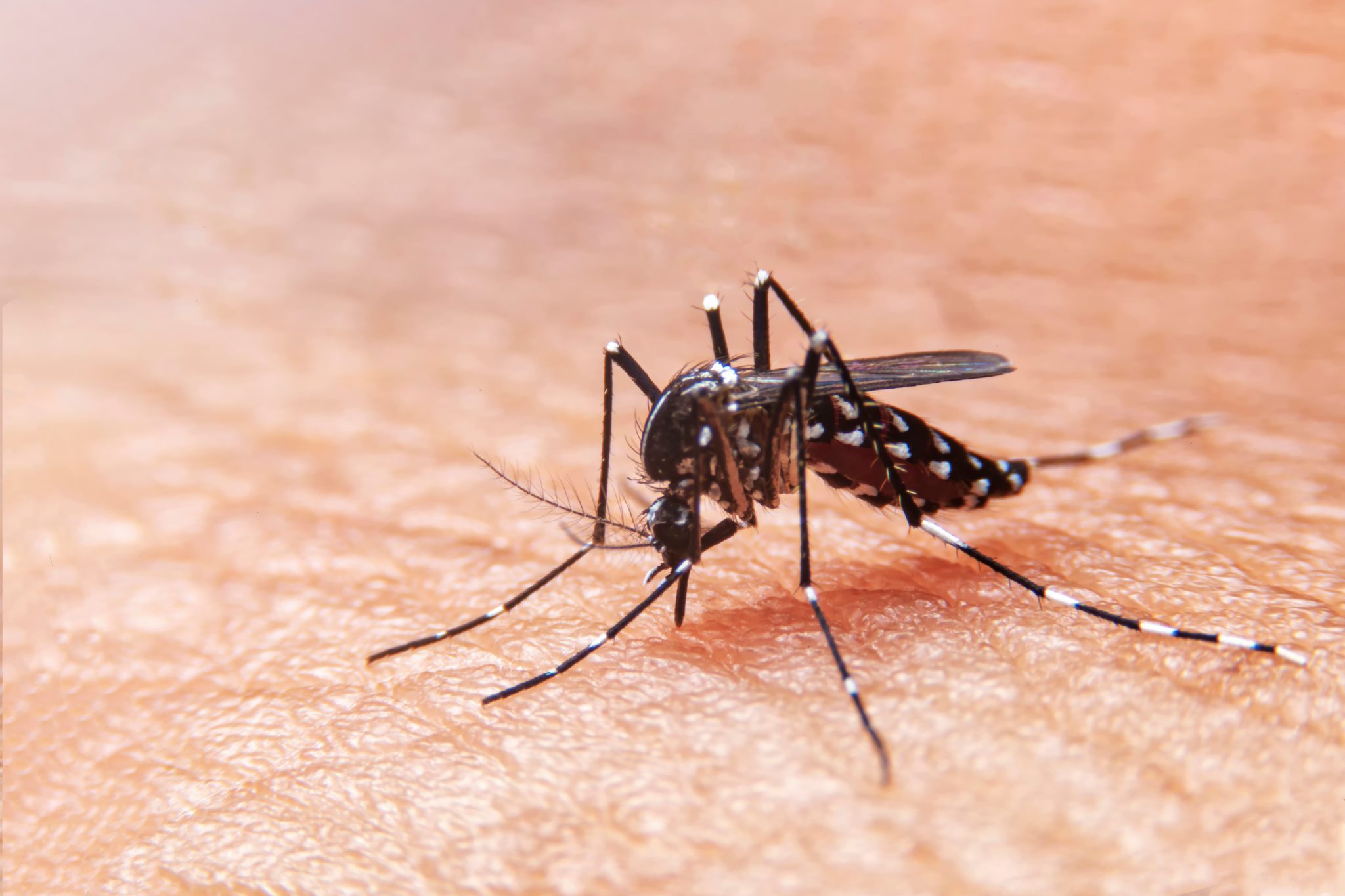Reducing Mosquito-Borne Illnesses
November 18, 2021The Full Story
Did you know that while there are over 3,000 species of mosquitoes in the world, only 74 are found in Jamaica? Only two of those species of mosquitoes are vectors, which means that they are living organisms that can transmit infectious diseases between humans, or from animals to humans. These vector species are the anopheles, which carries malaria and the aedes aegypti, which transmits dengue fever, chikungunya, and Zika.
Have you adequately protected yourself and your family from this tiny yet powerful insect? While all adult mosquitoes eat nectar which help to pollinate plants and are an important food source for many other animals, the female mosquito needs protein to create eggs, which they get from blood. Viruses spread when an uninfected mosquito feeds on someone who has the virus circulating in their blood which is then transmitted to a new host, when the mosquito next attacks. Therefore, one mosquito can infect several persons during its short lifespan and that means we need to protect ourselves.
Bar chart of suspected dengue cases in Jamaica from 2018 – 2021 (up to June 2021)
Data taken from Weekly Epidemiology Bulletin National Epidemiology Unit, Ministry of Health and Wellness, Jamaica, June 2021.
*As at June 2021, there were 17 suspected cases.
How to Get Rid of Breeding Sites
The most effective way to reduce the population of mosquitoes is by removing their breeding sites.
- Mosquitoes mostly breed in standing water so check to ensure that there are no open containers, such as drums or tyres which can collect water.
- Empty containers and place them upside down or throw away any that are not in use.
- Air conditioning units also tend to collect stagnant water, so ensure that your AC’s drain is free of water.
- Fill tree holes and other cavities in plants with soil or sand.
- Punch holes in cans or tins.
- Check for hidden bodies of water such as clogged drains, septic tanks and manholes.
National Epidemiologist, Dr. Karen Webster Kerr speaks to JIS Radio about destroying mosquito breeding sites.
Get Involved!
Ensure that you stay safe by:
- Organising clean-up activities in your home and community.
- Reporting mosquito breeding sites that will require assistance from relevant authorities.
- Using insect repellent containing DEET, IR3535 or PICARIDIN.
- Using mosquito nets.
- Using mosquito deterrents such as electric mosquito destroyer mats, mosquito destroyer coils or specially formulated candles.
- Putting screens on windows and doors.
Government Assistance
The Ministry of Health and Wellness (MOHW) conducts surveillance exercises, participates in public education campaigns and provides vector control. Vector control involves conducting entomological surveys, in which field inspectors look for the breeding sites to destroy them and kill adult mosquitoes with intense fogging.
Regional Vector Control Officer at the Western Regional Health Authority (WRHA), Ryan Morris speaks to JIS Radio about fogging.
During fogging exercises, members of the public are reminded to cooperate with the vector-control workers. The chemicals used by the MOHW in Jamaica for fogging, are safe and do not pose any risk to human health or the environment as it degrades rapidly in the surroundings.
It is advised, however, that if you suffer from a respiratory illness, then you should avoid being close to the fumigation area or cover your mouth with a wet rag to minimise any irritation. If you want to report an area in your community that needs fogging or other means of vector control, you are encouraged to contact the Ministry of Health and Wellness.
For additional information, contact:
The Ministry of Health and Wellness
10-16 Grenada Crescent
Kingston 5
Telephone: 876-633-8103, 876-633-7433
Email: pr@moh.gov.jm
Website: www.moh.gov.jm


